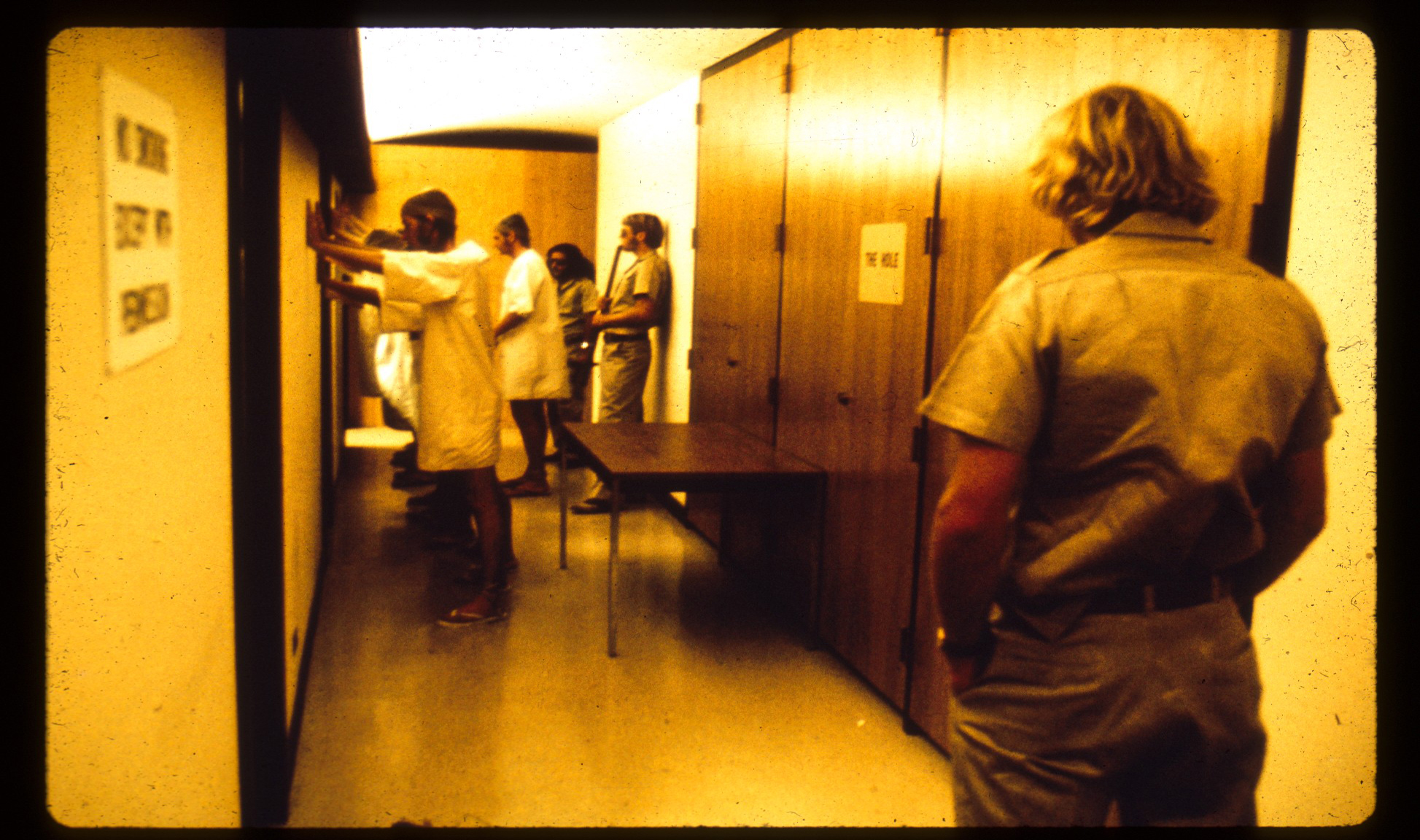
This past week (August 15-20) marks the 50th anniversary of the landmark Stanford Prison Experiment. In recognition of that anniversary, I have released my musical retelling and interpretation of its events, on which I had been working as a private project for several years.
Stanford Prison Experiment: The Musical is the core of a libretto for a mini-musical, with new lyrics that I wrote to music from popular songs that would have been broadcast over radio during the actual events of the Stanford Prison Experiment. Two of the selected songs were chart-toppers from earlier years, while the remaining were “Top 40” singles during that specific week.
The Stanford Prison Experiment, a social-psychology simulation that sought to investigate the psychological effects of perceived imbalance of power, was conducted by psychology professor Philip Zimbardo at Stanford University in August 1971. College-student volunteers were assigned to be either “guards” or “prisoners” (by the flip of a coin) in a mock prison. Due to deteriorating psychosocial conditions, several “prisoners” left mid-experiment, and the entire experiment was abandoned after only six days of what had been anticipated to last for two weeks.
The outcomes of the Stanford Prison Experiment underscore the vital need for systems literacy — the fundamental awareness and understanding of pervasive interconnectedness, interoperation, and interdependence — as an essential life-skill for every level of human interaction, from societal to organizational to interpersonal. The systemic emergence and escalation of an “us-versus-them” mindset between the guards and prisoners of the SPE can be seen also between Quality and Manufacturing departments in a company, between individualist and collectivist advocates in sociopolitical discourses, and even within one-on-one personal relationships.
To sidestep getting ourselves lost in these adversarial roles, we need to remind ourselves continually to revisit the effectiveness and consistency of our means, in the light of the ultimate objectives that we seek. We need to be able to identify, to understand, and to remediate causal chains and loops, especially when reinforcing feedback and counterproductive consequences begin to emerge. Finally, we need to be able to apply polarity thinking, recognizing that there usually is truth and wisdom on more than one side of any complex issue, with the greater good of a bigger picture dependent upon complementary contributions from each side.
It is my hope that Stanford Prison Experiment: The Musical will generate broader, deeper discussion of the event itself, of its implications, and of its showcasing of systems-thinking principles in our social constructs and interactions.
View my webpage on Stanford Prison Experiment: The Musical and the event behind it